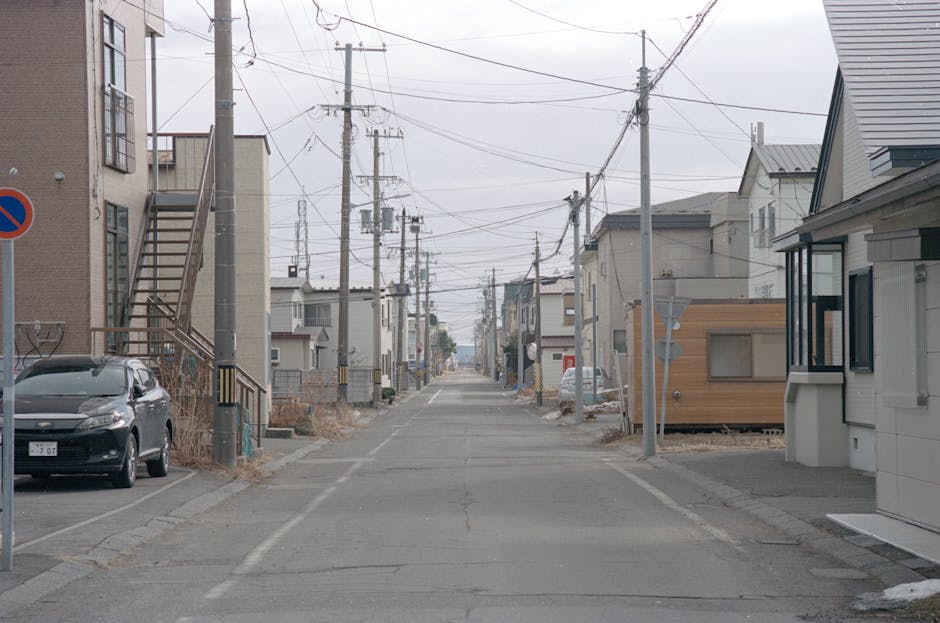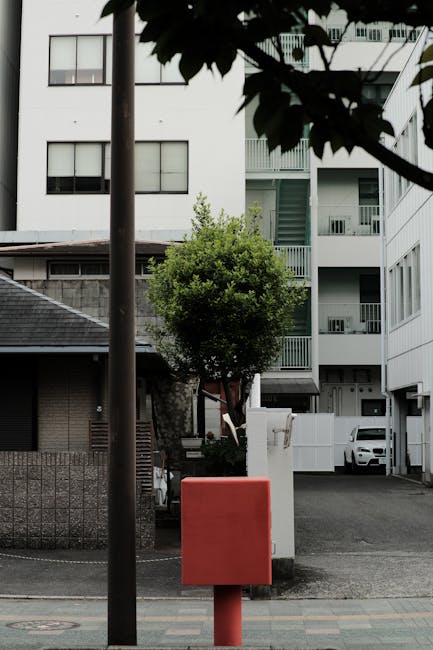【Daily-Life Japanese】 Speak Like a Local: Essential Everyday Phrases

【Daily-Life Japanese】 Speak Like a Local: Essential Everyday Phrases
Konnichiwa, style-seekers! Welcome back to my little corner of the internet, where we delve into the art of living beautifully and intentionally. Today, we're not just focusing on sleek furniture or minimalist design; we're diving into something equally important – the graceful language that shapes daily life in Japan. We're going to embark on a journey through a typical day, equipping you with essential Japanese phrases to not just survive, but thrive in everyday situations. Think of it as adding another layer of sophisticated charm to your already impeccable style! Let's get started!
I've always been fascinated by how language, much like a carefully curated space, can influence our entire experience. Japanese, with its polite nuances and elegant expressions, is particularly captivating. It's more than just words; it's about connection, respect, and a quiet appreciation for the present moment. So, whether you're planning a trip to Japan, immersing yourself in Japanese culture from afar, or simply seeking a new way to appreciate the beauty of everyday life, this guide is for you!
Forget rote memorization and dry grammar drills! We're learning through context, through the flow of a typical day. Imagine yourself waking up in a sun-drenched room, the scent of tatami mats filling the air. This is our stage, and these are your lines.
Morning Greetings & Getting Ready

The day begins! And what better way to greet it than with a warm and polite Japanese greeting?
1. Waking Up and Greeting Family:
"Ohayō gozaimasu" (おはようございます): Good morning (formal). This is your go-to greeting for family, housemates, or even your neighbor if you run into them. It's polite and universally appropriate in the morning. "Ohayō" (おはよう): Good morning (informal). Use this with close friends or family members you're comfortable with. "Okitayo" (起きたよ): I woke up! A casual way to announce your presence to those nearby. It's cute and friendly, especially if you have children. "Nemui..." (眠い…): Sleepy… A universally understood expression, even in Japanese! Perfect for those groggy mornings.
2. Breakfast Time:
"Itadakimasu" (いただきます): Let's eat/Thank you for the meal (before eating). This is an essential phrase before every meal. It expresses gratitude for the food and the effort that went into preparing it. It's a cultural cornerstone. "Gochisōsama deshita" (ごちそうさまでした): Thank you for the meal (after eating). This is said after you finish eating, again expressing gratitude. "Oishii" (美味しい): Delicious! A simple yet powerful word to express your enjoyment of the food. Feel free to amp it up with "Totemo oishii" (とても美味しい) for "very delicious!" "Mou sukoshi kudasai" (もう少しください): Please give me a little more. Useful when you want a second helping of something.
3. Leaving the House:
"Ittekimasu" (行ってきます): I'm leaving (and will return). You say this when leaving the house. It implies that you'll be back later. "Itte rasshai" (行ってらっしゃい): Go and come back safely. This is the response to "Ittekimasu." It's a warm and reassuring send-off. "Ki o tsukete" (気をつけて): Be careful. A general phrase of concern, used when someone is leaving, traveling, or embarking on something potentially risky.
Navigating the Day: At Work, School, or Out and About

Stepping out into the world! Whether you're heading to work, school, or simply exploring the city, these phrases will help you navigate your day with grace and confidence.
1. Greetings and Introductions:
"Konnichiwa" (こんにちは): Hello/Good afternoon. This is your all-purpose greeting for most of the day. "Hajimemashite" (はじめまして): Nice to meet you. Say this when you're meeting someone for the first time. "Watashi wa [your name] desu" (私は[your name]です): I am [your name]. Follow this up with "Dōzo yoroshiku" (どうぞよろしく), which is a polite way of saying "Pleased to meet you" or "Treat me well." "O-genki desu ka?" (お元気ですか): How are you? A polite way to ask about someone's well-being. The response is typically "Genki desu" (元気です), meaning "I'm fine." "Sumimasen" (すみません): Excuse me/I'm sorry. This is a very versatile word. Use it to apologize, get someone's attention, or navigate through a crowded space. It's practically a magic word in Japan.
2. At Work or School:
"Osaki ni shitsurei shimasu" (お先に失礼します): Excuse me for leaving before you (when leaving work). This is a very important phrase to say when you're leaving work before your colleagues. "Otsukaresama desu" (お疲れ様です): Good work/Thank you for your hard work. This is a common phrase used to acknowledge someone's hard work. It's appropriate to say to colleagues, superiors, or even people you encounter in customer service roles. "Wakarimasen" (わかりません): I don't understand. Be honest and use this phrase if you're struggling to understand something. "Mou ichido onegai shimasu" (もう一度お願いします): Please say it again. Politely asking someone to repeat themselves. "Arigatō gozaimasu" (ありがとうございます): Thank you (formal). Use this for most situations. "Dōmo arigatō" (どうもありがとう): Thank you (slightly less formal). Use with friends or colleagues you're closer to. "Dō itashimashite" (どういたしまして): You're welcome.
3. Shopping and Dining:
"Kore wa ikura desu ka?" (これはいくらですか): How much is this? Essential for shopping! "Kore o kudasai" (これをください): I'll take this, please. Point to the item and say this. "Fukuro wa irimasen" (袋はいりません): I don't need a bag. A great way to reduce waste and show your environmental awareness. "Osusume wa nan desu ka?" (おすすめは何ですか): What do you recommend? Useful when you're unsure what to order at a restaurant. "Kore to kore o onegai shimasu" (これとこれをお願いします): I'll have this and this, please. "Kaikei onegai shimasu" (会計お願いします): Check, please. When you're ready to pay the bill at a restaurant. "Betsu betsu de" (別々で): Separately. Use this if you want to split the bill. "Tsukareta" (疲れた): I'm tired. (Informal way of expressing tiredness).
4. Asking for Directions:
"… wa doko desu ka?" (…はどこですか): Where is…? Fill in the blank with the place you're looking for (e.g., "Eki wa doko desu ka?" - Where is the station?). "Toire wa doko desu ka?" (トイレはどこですか): Where is the bathroom? A very important phrase! "Chikaku ni [place] wa arimasu ka?" (近くに[place]はありますか): Is there a [place] nearby? (e.g., "Chikaku ni konbini wa arimasu ka?" - Is there a convenience store nearby?)
Evening and Nighttime: Relaxing and Winding Down

As the sun begins to set, it's time to unwind and reflect on the day. These phrases will help you transition into a peaceful evening.
1. Returning Home:
"Tadaima" (ただいま): I'm home! You say this when you return home. "Okaeri nasai" (お帰りなさい): Welcome home! This is the response to "Tadaima."
2. Dinner and Evening Conversation:
(Repeat: "Itadakimasu" and "Gochisōsama deshita" from breakfast.) "O-furo ni hairu" (お風呂に入る): To take a bath. A bath is an integral part of the Japanese evening routine. "Kimochi ii" (気持ちいい): Feels good. Perfect for describing the feeling of a relaxing bath or massage. "Nani o shiteru no?" (何をしているの?): What are you doing? (informal). "Zenzen daijoubu" (全然大丈夫): It's totally okay/No problem. "Ganbatte!" (頑張って!): Do your best! (A cheer/encouragement).
3. Bedtime:
"Oyasumi nasai" (おやすみなさい): Good night (formal). "Oyasumi" (おやすみ): Good night (informal). "Ii yume o" (いい夢を): Sweet dreams. "Mata ashita" (また明日): See you tomorrow.
Bonus Phrases for Everyday Charm:

These little phrases add a touch of elegance and thoughtfulness to your communication:
"Yoroshiku onegaishimasu" (よろしくお願いします): A versatile phrase that can mean "Please treat me well," "I'm in your care," or simply "Thank you in advance." It's used in various situations and shows respect. "Ganbatte kudasai" (頑張ってください): Please do your best. A polite way of encouraging someone. "Omedetō gozaimasu" (おめでとうございます): Congratulations. "Daijōbu desu" (大丈夫です): I'm okay/It's okay. Use this to decline offers or reassure someone. "Hontō ni?" (本当に?): Really? "Kawaii!" (可愛い!): Cute! A very common and acceptable expression of admiration.
Pronunciation Tips for Polished Delivery:

While memorizing phrases is important, mastering pronunciation will truly elevate your Japanese communication. Here are a few key things to keep in mind:
a. Vowel Sounds: Japanese vowels are generally pure and short. Practice saying "a," "i," "u," "e," and "o" clearly.
b. Consonant Sounds: Pay attention to the subtle differences between Japanese consonants and their English counterparts. For example, the "r" sound is closer to a soft "l."
c. Pitch Accent: Japanese is a pitch-accent language, meaning the pitch of a syllable can change the meaning of a word. While mastering pitch accent takes time and practice, focusing on listening carefully to native speakers will help.
d. Politeness Levels: Remember that Japanese has different levels of politeness. When in doubt, err on the side of being more polite, especially when interacting with strangers or superiors.
Integrating Japanese into Your Daily Life (Even If You're Not in Japan!)

You don't have to be in Japan to embrace the beauty and practicality of the Japanese language. Here are a few ideas to weave it into your everyday:
- Label Your Belongings: Add Japanese labels to your household items, like "Tēburu" (テーブル - table) or "Hon" (本 - book). It's a fun and visual way to expand your vocabulary.
- Listen to Japanese Music and Podcasts: Immerse yourself in the sounds of the language by listening to Japanese music or podcasts while you work or commute.
- Watch Japanese Dramas or Anime: Watching Japanese TV shows or anime (with subtitles) is a great way to learn new phrases and get a feel for natural conversations.
- Use Language Learning Apps: Apps like Duolingo or Memrise can help you build your vocabulary and grammar skills in a fun and interactive way.
- Find a Language Partner: Connect with a native Japanese speaker online or in your community for language exchange. This is a fantastic way to practice your speaking skills and get personalized feedback.
Learning Japanese, like curating a beautiful space, is an ongoing journey. It requires patience, dedication, and a genuine appreciation for the culture. But trust me, the rewards are immeasurable. Not only will you be able to communicate more effectively with Japanese speakers, but you'll also gain a deeper understanding of Japanese culture and a newfound appreciation for the beauty of everyday life. So, go forth, embrace the challenge, and add a touch of Japanese elegance to your world!
Sayōnara for now! And remember, even a few simple phrases can open up a whole new world of connection and understanding. Keep exploring, keep learning, and keep living beautifully!
Post a Comment